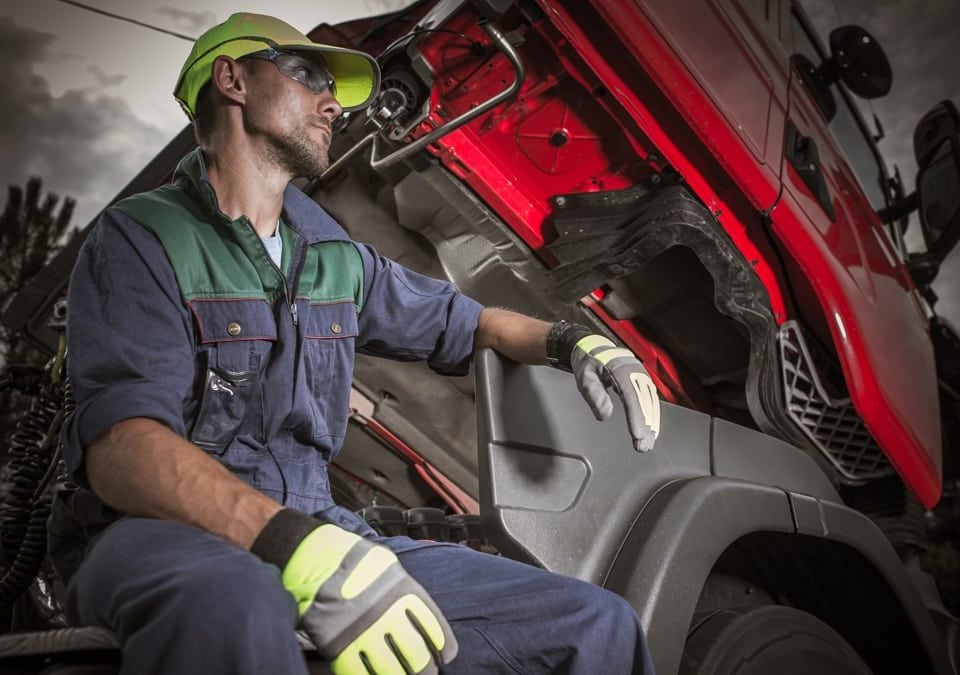What Employers Are Looking For In A Skilled Mechanic

Managing Your Career As A CNC Machinist
March 16, 2018
Industrial Trades Pros Launch Press Release
March 21, 2018As a skilled diesel, trailer or equipment mechanic, you know plenty about your trade. But when it’s time to look for a new job, it’s helpful to understand what a high-quality employer is looking for in a top mechanic candidate. Some key qualities include:
- Necessary Skills
- Solid and Consistent Experience
- Initiative
- Professionalism
- Fit With The Company
- Tools
Let’s take a look at each of these qualities so you can become the best candidate possible for the employers you are pursuing.
Necessary Skills
Do you have the skills for the job? Do your homework upfront. Does the employer only service diesel engines? Are they an equipment rental and service shop? Will you be doing both tractor and trailer work? Or just trailer work? Does the shop do its own in-frame rebuilds or does it send engines to the dealer for major repair work?
Read the job post or job description carefully. Check the company’s website for more details. If you know anyone who has worked for the company, reach out to them to clarify what the position is really like.
In general, mechanics are expected to have some computer diagnostic experience, and the more computer diagnostic programs you are familiar with the better. If you possess manufacturer certifications, it is very helpful. These certifications will enable you to complete high-value warranty work for the shop. While this is not usually required, it’s a good way to set yourself apart from other candidates. Previous fabrication and/or welding experience is useful in many shop and field mechanic opportunities.
The saying, “you have to fake it until you make it,” does NOT apply to this situation in any way whatsoever! Be honest with yourself and the employer. A great way to stall your career is to interview around town wasting every mechanic shop’s time by pretending you have skills that you don’t. Diesel, trailer and equipment hiring managers are very good at assessing ability. They will quickly detect that you lack the skills to do the job and will pass the word onto their colleagues at other companies that you were not upfront and honest.
If you do NOT have the skills to do the job, feel free to apply for the position with a thoughtful cover letter that communicates your experience to date and your passion for becoming a more experienced mechanic. While it may not be the exact position the shop was advertising, the manager or recruiter may be impressed by your drive and willingness to take a chance. Don’t just send your resume without the letter, because the recruiter or hiring manager will dismiss you as unqualified.
If you do have the necessary skills, make sure to highlight your qualifications clearly in your resume. It’s worth the little bit of time to do it. Include all licenses and certifications that you have that are applicable to the position. Sending a cover letter with your resume might be a nice touch to show your commitment to the opportunity and highlight any important aspects of your resume and experience.
Don’t take silence as an answer. Sometimes hiring managers get busy with their other responsibilities and fail to get back to candidates right away. Pick up the phone and follow-up. Again, this will show your interest in the opportunity, confidence in your qualifications, and your overall professionalism (see below).
Solid and Consistent Experience
There is no substitute for on-the-job experience as a mechanic. The number of years you’ve worked cumulatively says a lot about your expertise (after all, someone had to believe in your skills!). Transportation and equipment employers are especially looking to avoid mechanics who are “job–hoppers” or “shop-hoppers,” spending only a few months at certain shops or having an inconsistent work history. This can set off alarms, even if it wasn’t your fault. In hiring, patterns often repeat themselves. If you have a poor work history, buckle down and put in the time to fix your job tenure. Emphasize to employers how you’ve now committed yourself to the profession and look for a way to prove yourself to an employer.
Initiative
Hiring managers want to see initiative and a passion for your work as a tradesman or tradeswoman. These seemingly small things go far to show an employer that you are likely to be successful and stick with their company. Are you working on engines or on your own vintage car during your free time? Have you registered for a new diesel engine course at the local trade school? Did you take on special projects at your previous employer to acquire new valuable skills? These details matter.
Do your research on the company you are interviewing with. Become an expert on their website and the kind of work they do. If you have a friend who worked for them in the past, give him or her a call so you understand the company and position in detail. Your mentioning this information and your initiative to do real research will absolutely impress the recruiter or hiring manager at the company.
If you are not already making some of these efforts, look out for opportunities to do so. Join groups on LinkedIn that are relevant to your industry. Start developing relationships with more experienced mechanics in the trades. The more you can prove to the hiring manager that you care about the trade, the more excited they will be to get you onto their team.
Professionalism
Being a mechanic is different than it was back in the day. The caricature of the grease monkey mechanic hunched over an engine and cursing up a storm is a thing of the past. Today, mechanics are professionals with expertise in mechanical, electronic and hydraulic repair. All mechanics must possess the ability to troubleshoot issues quickly and solve them while keeping in mind the solution itself and how it will impact the company’s bottom line.
Mechanics are expected to interact professionally with customers and co-workers. In a world where a few bad reviews on Yelp or Google can mean serious trouble for a company, professional interactions are extremely important. Even worse is losing a client or equipment operator who felt you did not hear her out about what is not operating correctly or safely on the piece of equipment she brought in for repair.
So what can you do to present yourself as professional? Bring an exceptional level of professionalism to every interaction that you have with a prospective employer. When you are speaking with the hiring manager, tighten up your language and use the same professionalism that you would use with a future customer. Respond quickly to any requests for information and be sure to show up on time for your on-site interview. If possible, keep records of your past experience and take photographs of your work (if permitted) so that you can share them with the employer. Reach out to a handful of potential references that are likely to be honest andcommunicate how you exhibited skill and professionalism in your past work.
Fit With The Company
Employers typically hire those candidates that they believe are going to be a strong fit with the company’s culture. Hiring managers are desperately looking for the kind of employees that will do a great job and are likely to stay at the company for a long time. Hiring is expensive and time-consuming business, so, if they can get it right the first time, it counts for a lot.
What can you do? It is a good sign if the company can articulate clearly what their culture is and the kind of people that excel at the company. Be honest with yourself when you are doing your research before your interview. If you recognize details about the company and the work they do that jive well with who you are, take note and talk them up in your interview. Use some of the time in your interview to ask questions of the hiring manager about the company and the type of people that succeed most there. Remember it’s their time to assess you, but it is also your time to assess them. If you end up NOT excited about the company, then keep going with your search. Your career is too important to settle for a company that you do not fit with.
Tools
In general, a mechanic is expected to develop a set of tools over time. The number of tools you have often reflects your experience and your willingness to invest in yourself and your career. Just possessing a large set of tools can establish strong credibility to the prospective employer. There are some exceptions, such as a field service mechanic who has been using the tools supplied by his or her employer for years and hasn’t needed his or her own set.
If you don’t have a lot of tools, be ready to discuss why, but don’t panic. If a candidate has the skills an employer needs, they are usually very open to assisting an employee with the acquisition of tools. Ask the employer if they have a “tool sheet” that lists the tools required for the position you applied for and the time frame to obtain the tools. This will help you determine if your budget will allow you to purchase the tools within that time frame. In the cases where the employer does assist in the purchase of tools, keep in mind that it is often structured as a loan. For that reason, you need to makes sure this position is a great long-term fit for you. Note that, in most situations, an employer will help a newly hired employee transport his or her tools from storage or from a previous employer to their shop prior to start.
* * *
Now that you know what an employer is looking for in a skilled mechanic, you can begin your job search at Industrial Trades Pro. We can help you connect with top-tier diesel, trailer and equipment mechanic employers that match your skills, experience, and career goals. Contact us today to begin your search!




